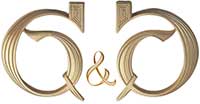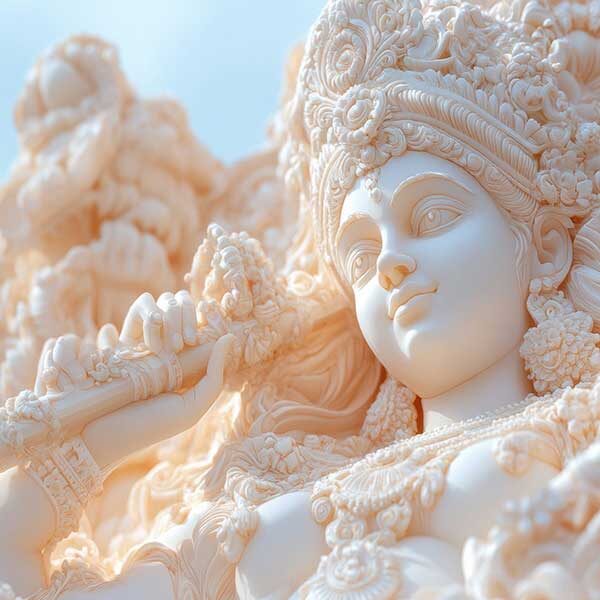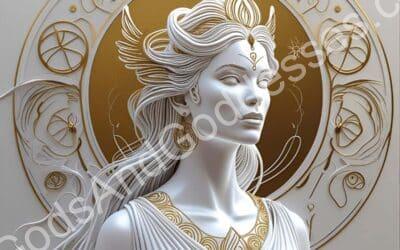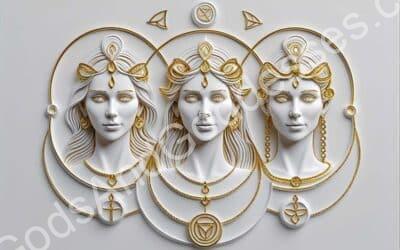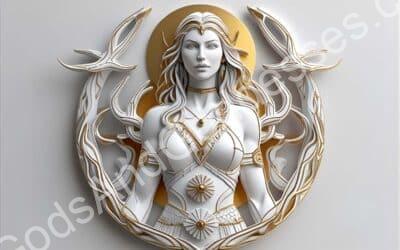Receive Our Newsletter
Resources and reminders to
live your Divine Destiny™
Introduction: Why Goddess Types Matter
Goddess types serve as symbolic mirrors for our own strengths, fears, and transformations—helping us see universal patterns in divine form. While goddess names and stories differ, their roles often follow timeless archetypes, reflecting the deep patterns of human imagination and spirituality.
Across cultures and centuries, goddesses embody the most essential aspects of life—love, fertility, wisdom, war, death, rebirth, and healing. At GodsAndGoddesses.com, we explore the sacred feminine within the wider landscape of mythology, alongside gods and goddesses.
“The goddess archetypes reveal not only who the divine feminine is, but who we are capable of becoming.”
Key Takeaways About Goddess Archetypes
-
Goddess types express recurring roles—love, wisdom, war, death, healing, and nature.
-
Archetypes reveal how cultures interpret universal human experiences.
-
Many goddesses fit more than one type, showing the fluidity of divine roles.
-
These archetypes remain powerful in spirituality, psychology, and creative work.
Explore Goddess Types
-
Huntress Goddess → Archetype of wilderness, independence, and strength.
-
Triple Goddess → Maiden, Mother, and Crone in myth and modern spirituality.
-
Healer Goddess → Divine figures of medicine, fertility, and renewal.
What Are Goddess Archetypes?
A goddess archetype is a symbolic role or domain that reappears across cultures. These patterns allow us to see beyond individual stories to the shared language of myth:
-
Love and Fertility – Passion, beauty, creation.
-
Wisdom and Knowledge – Insight, counsel, justice.
-
War and Protection – Strength, sovereignty, fate.
-
Death and the Underworld – Endings, transformation, rebirth.
-
Healing and Renewal – Medicine, restoration, balance.
-
Nature and the Hunt – Wilderness, animals, cycles of growth.
See also: List of Goddess Names.
Types of Goddesses Across Cultures
The Goddess of Love
-
Domains: Passion, fertility, beauty.
-
Examples: Aphrodite (Greek), Freyja (Norse), Hathor (Egyptian).
-
Symbols: Doves, roses, seashells, cats.
-
Archetype: The Lover.
See also: Beautiful Goddess Names.
The Goddess of Wisdom
-
Domains: Knowledge, foresight, justice.
-
Examples: Athena (Greek), Saraswati (Hindu), Frigg (Norse).
-
Symbols: Owls, scrolls, mirrors.
-
Archetype: The Sage.
See more: Goddess Symbols.
The Goddess of War
-
Domains: Battle, fate, protection.
-
Examples: The Morrigan (Celtic), Sekhmet (Egyptian), Anat (Canaanite).
-
Symbols: Ravens, swords, blood-red fields.
-
Archetype: The Warrior.
See also: The Morrigan.
The Goddess of Death and the Underworld
-
Domains: Endings, afterlife, transformation.
-
Examples: Hel (Norse), Izanami (Japanese), Persephone (Greek).
-
Symbols: Flames, skulls, serpents.
-
Archetype: The Dark Mother.
See more: Izanami: Japanese Goddess of Creation and Death.
The Goddess of Healing
-
Domains: Medicine, health, renewal.
-
Examples: Brigid (Celtic), Eir (Norse), Sulis (Celtic).
-
Symbols: Wells, herbs, cauldrons.
-
Archetype: The Healer.
See: Healer Goddess.
The Goddess of Nature and the Hunt
-
Domains: Wilderness, fertility, animals, cycles.
-
Examples: Artemis (Greek), Flidais (Celtic), Diana (Roman).
-
Symbols: Deer, bows, forests, the moon.
-
Archetype: The Huntress.
See also: Huntress Goddess.
The Triple Goddess
Many traditions depict the feminine divine as a trinity:
-
Maiden – youth, beginnings.
-
Mother – fertility, nurturing.
-
Crone – wisdom, endings.
See more: Triple Goddess.
Why Goddess Types Matter
-
They explain universal patterns of myth and human life.
-
They empower modern seekers to connect with archetypes personally.
-
They provide symbolic tools for creativity, spirituality, and psychology.
FAQs About Goddess Types
How many goddess types are there?
There are many, but the most common include love, wisdom, war, death, healing, and nature.
Do all cultures share the same archetypes?
While details differ, love, wisdom, war, death, and fertility recur across global traditions.
Can one goddess belong to more than one type?
Yes—Brigid, for example, embodies healing, poetry, and fire.

Conclusion
The goddess archetypes are not rigid categories—they are living symbols. A goddess of war may also nurture. A goddess of wisdom may descend to the underworld. Archetypes help us see the patterns across cultures and inspire us to embrace the sacred feminine in all her forms.
Explore further:
“To know the goddess types is to glimpse the many faces of the sacred feminine—lover, sage, warrior, healer, mother, and crone.”
Posts About Goddess Types
The Healer Goddess: Divine Archetypes of Healing, Health, and Renewal
Introduction: Why the Healer Goddess Matters The Healer Goddess stands as one of the most universal—appearing across cultures as the bringer of health, wholeness, and renewal. She is more than a...
The Triple Goddess: Maiden, Mother, and Crone in Myth and Ritual
Introduction: Why the Triple Goddess Matters The Triple Goddess remains one of the most enduring: a sacred cycle of Maiden, Mother, and Crone that embodies life, death, and renewal. At...
The Huntress Goddess: Archetype of Wilderness, Strength, and Independence
Introduction: Why the Huntress Goddess Matters The Huntress Goddess endures as one of the most striking: fierce, untamed, and unbound by domestic ties. She represents wild independence, sacred...
- Odin God Story - August 24, 2025
- The Story of Ra: Egyptian Sun God and Creator - August 24, 2025
- Kraken: Mythological Sea Monster of the Deep - August 24, 2025
